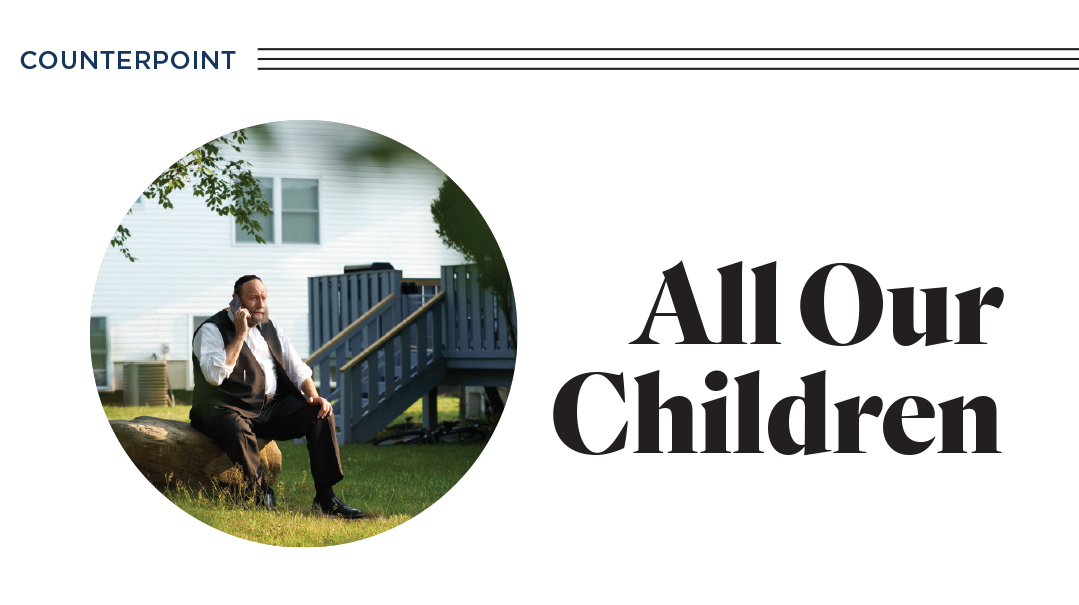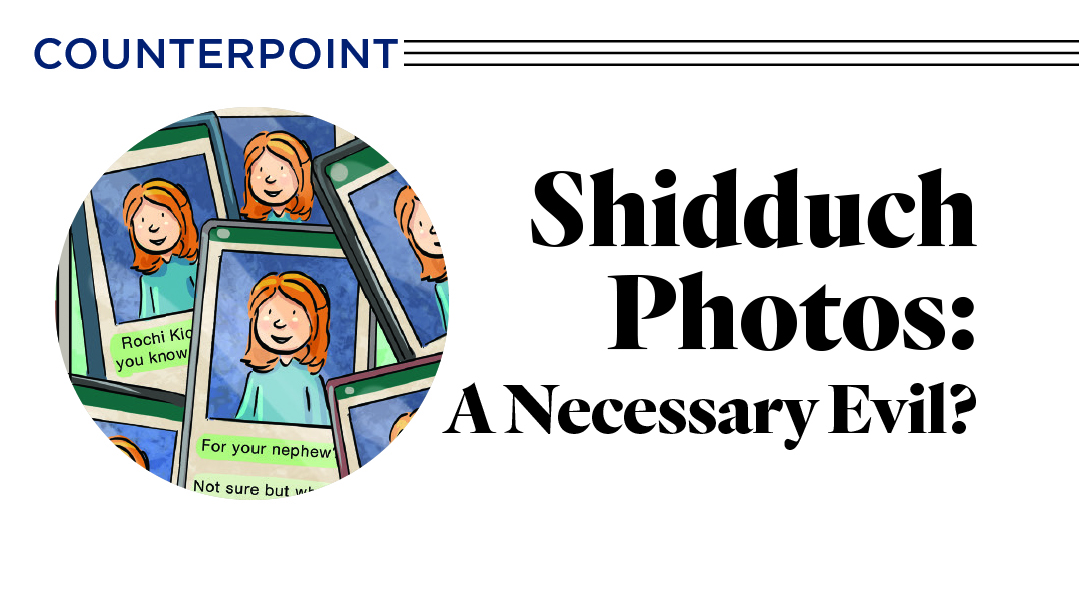Out-of-Town Advantage

Out of town may be a fantastic move for you as it has been for us

The FOMO is Real — Name Withheld
I live out of town; my kids are “out-of-towners.” For someone born and bred in New York, this statement is hard to make. I love it here, but we live here consciously by weighing the pros and cons.
The fantastic out-of-towners who wrote last week are in a bit of a different situation, having moved to guide a kehillah, to make an impact as a day school rebbi, or to bring back Klal Yisrael to Yiddishkeit. We, the accountants, nursing home administrators, actuaries, and lawyers, know that with a simple test or a license fee, we could be plying our craft in New York, near our parents and our children’s bubbies and zeidies. Since we are not living in the sticks for klei kodesh reasons or because we couldn’t hack it in New York, there is a level of guilt that weighs on some of us.
For those of us whose families live close to each other, the FOMO is real, and it is hard. Not just missing the simchahs, but even more so missing the small stuff: our kids missing Bubby taking all of the eineklach to Mendelsohn’s for pizza on a random Thursday night and the impromptu family BBQ on a lazy summer evening. Seeing those pictures on the family WhatsApp and missing those moments hurts.
Our children do not have the consistent relationship with Bubby and Zeidy that their other grandchildren do, where Bubby attends every birthday and program in their New York school and knows the ins and outs of their lives, so we struggle with the longing for our family.
While our relationships with our close friends are so much stronger since all of our families live so far away, they’re not a substitute for the unconditional love that only family can provide.
There are amazing strengths about out of town mentioned last week, and they are all 100 percent true, which is exactly why we moved here and continue to live here and enjoy it. But to say all we are missing is some choices of dips and a 9 a.m. Shacharis is not the full picture.
A current example: Sending our kids to sleepaway camp involves so much travel. We can’t just drive to Bay Parkway as my parents did and drop them off at a bus stop. We fly with them or drive for hours, typically missing two to three days of work. It’s so important for our kids to go to sleepaway camp and meet other kids their age and expand their horizons, and it is our duty as parents to work out the details to make it happen.
There are other things that just take a little time to get used to. Growing up, my ENT always asked me which sugya I was learning. Now, my doctor asks me how my Jewish community feels about our president or discusses questions from his bible study.
People in shul mow their own grass and know the difference between a circular and a table saw and own them both. The more intense ones can replace their own toilets, shoot tight five-shot groups with their Smith & Wessons, and dehydrate their own beef jerky. Takes getting used to for someone who didn’t know a flathead from a Phillips or a perennial from an annual until recently.
I cannot deny that living here has its amazing advantages — our kids are wholesome and excited with getting a Slurpee as their major prize, and paper goods for a bris are bought at Dollar Tree without shame. Our children attend a fantastic school with small classes and young dynamic rebbeim and morahs who love each child like their own. We enjoy a real relationship with every member of the school administration who is always there for us day and night. The lower cost of living, lack of traffic, and less materialism make it the norm that fathers are home every night for family dinner and homework, able to learn every night, and still have time for community involvement, which is precious.
We love the achrayus we are empowered with: being an active part of our shul, kollel, school, and even chevra kadisha, positions relegated for only those of higher stations in bigger cities. People living here enjoy life and walk around with smiles and great attitudes.
Out of town may be a fantastic move for you as it has been for us, so do your homework so you can make an amazing informed decision.
Positive Peer Pressure — R.L.H., Baltimore, MD
Reading your recent piece on out-of-town living brought up a lot of emotions for me. You see, both my husband and I are baalei teshuvah. A little over three years ago, we moved from a very out-of-town community to Baltimore.
Living in the out-of-town community was so great for our Yiddishkeit; we had the freedom to really do what we felt was right in the eyes of Hashem. For example, my husband loved davening at a small minyan at home Shabbos mornings when he wasn’t up to making the long trek to minyan. And it was nice for me and the kids to have him davening at home — they could partake in the davening, listen in on him leining, etc. Also, we knew that no one was judging our “baal teshuvah-ish” behaviors, and that felt great. Finally, my husband loved the feeling of being the tenth for the minyan, being asked to daven from the amud, giving divrei Torah, and so on.
However, the time came when the local Jewish day school wasn’t sufficient for our growing kids, and we made the leap. I was grateful to move to a more normative community, but it took us a long time to adjust to the new reality.
Baruch Hashem, we have a rav who kept reinforcing for us the importance of raising kids in a vibrant and very established frum community. He kept on reminding us that since we didn’t grow up with a mesorah of what is done in a frum home, we needed to be part of a large kehillah to have some of the peer pressure encourage us in the right direction.
Had we stayed in the boondocks, chances are that our kids would have never been able to adapt or really gain a handle on the essence of Yiddishkeit and our mesorah. But the adjustment was and still is really hard for us.
After all is said and done, we’re very confident that moving to Baltimore was the right choice for our family. As some of the writers said, I’d also like to caution families — especially baalei teshuvah or people with a weak connection to a rav — to do some serious cheshbon hanefesh before moving away from established centers of religious life. Hatzlachah rabbah!
Keep Me in the Middle — Malky K.
I enjoyed the variety of perspectives that were shared in your symposium last week. We had an opportunity to move to an out-of-town community and be among the “Nachshons” in establishing a strong frum core, and it was a very wrenching decision.
I wasn’t so nervous about the lack of frum amenities and conveniences — I’m pretty resourceful, and I don’t mind doing my own baking and cooking from scratch. What bothered me was this: I think it’s healthiest for children to feel that they’re in the “middle” of their classmates whenever possible. They shouldn’t be the fanciest or the plainest, the wealthiest or the poorest, the frummest or the least frum. They get a certain stability from a middle position, and I’ve always tried to choose schools with this consideration in mind.
With this new offer, we would definitely not be in the middle. My kids would not only lose out from having a full mizrach vant of accomplished talmidei chachamim to look up to, they would also be in an uncomfortable position in their classes.
Obviously this was not our only consideration when making our decision, but it was a big one, and it should be taken into account when considering whether to move to a city where you will be the frum pioneer.
He Rebuilt — Steve Moses, Cincinnati, OH
I was excited to read the thoughts of Rabbi Avrohom Weinrib in last week’s magazine. Rabbi Weinrib spent his childhood in Flatbush, but he really grew up as the adrenaline-driven young rav who rebuilt the Cincinnati frum community that had languished since the passing of the beloved Rabbi Eliezer Silver. The indefatigable Rabbi Weinrib took a dormant community, a sleeping giant, and made it rise, not unlike the way challah rises before Shabbos.
Speaking of Shabbos, if one is fortunate to attend Congregation Zichron Eliezer (CZE), named in Rabbi Silver’s memory, you will see a multitude of congregants converge on Rabbi Weinrib following the end of the service, just to wish Rabbi Weinrib a gutten Shabbos. It’s a mutual love affair, often punctuated by spontaneous dancing in the shul’s aisles.
I would comment that one does not need to consult Rabbi Nate Segal, Torah Umesorah’s answer to Lewis and Clark, to navigate the seemingly uncharted waters on the other side of the Hudson. Just open the Summer Travel issue of Kashrus magazine, and you will find a veritable treasure trove of information on Jewish communities in every nook and cranny of the out-of-town universe. Each one takes as much pride in being out of town as we do here in Cincinnati.
No, I don’t live in Boro Park, Flatbush, Lakewood, or Monsey; I’m blessed to live “out of town” in Cincinnati!
(Originally featured in Mishpacha, Issue 771)
Oops! We could not locate your form.





Comments (0)